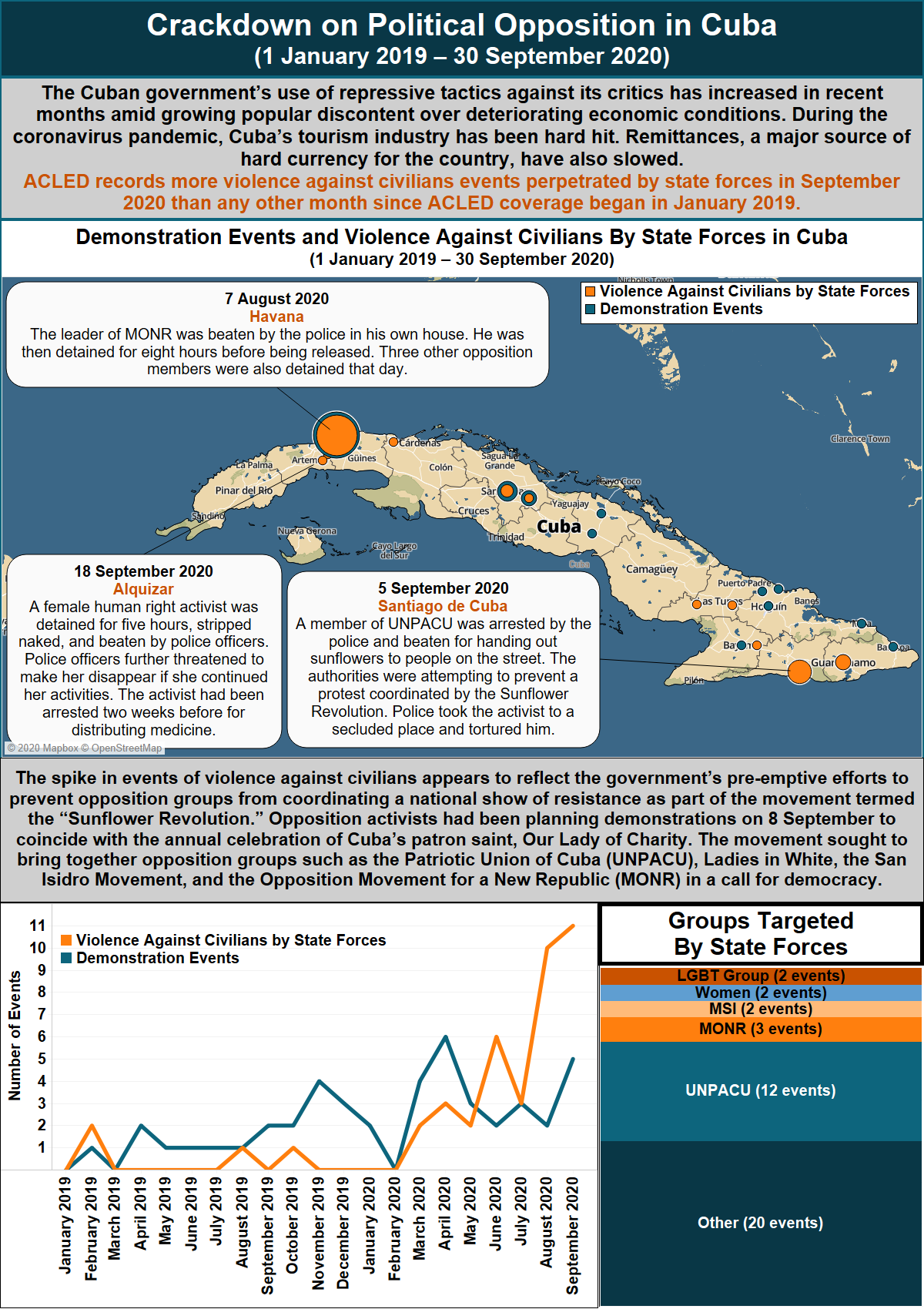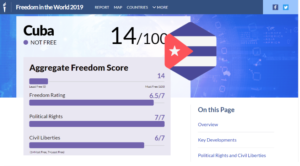
As Cuban democrats mark the ninth anniversary of the death of Ladies in White leader Laura Pollán, state violence is on the rise, according to the Armed Conflict Location & Event Data Project (ACLED – above).
Radio Martí reported on October 14, 2020 that the headquarters of the Ladies in White in Havana, starting early Wednesday morning was under police surveillance, on a day when several activists from that movement planned to gather there to pay tribute to Laura Pollán on the ninth anniversary of her death, the Center for a New Cuba reports.
 The current leader of the Ladies in White, Berta Soler explained that “in the early morning hours neighbors were telling us that the blocks near the national headquarters of the Ladies in White here in Havana were surrounded.” The Ladies in White leader stressed that Pollán “lost her life for the freedom of political prisoners, the freedom of the Cuban people and respect for human rights.”
The current leader of the Ladies in White, Berta Soler explained that “in the early morning hours neighbors were telling us that the blocks near the national headquarters of the Ladies in White here in Havana were surrounded.” The Ladies in White leader stressed that Pollán “lost her life for the freedom of political prisoners, the freedom of the Cuban people and respect for human rights.”
Soler, considered the group’s No. 2 leader despite its avowed nonhierarchical organization, said the Ladies will continue their weekly protest marches following Sunday Mass, dressed in white and carrying gladiolas, Associated Press reports.
“Everything will continue as always, without the physical presence of Laura Pollan, but spiritually she will be with us,” Soler said. “Tomorrow we will go to the Church of Santa Rita as we have been doing for eight years.”
 Cuba demonstrates how the Inter-American Democratic Charter’s high-minded aspirations have often proved elusive in practice, one analyst contends.
Cuba demonstrates how the Inter-American Democratic Charter’s high-minded aspirations have often proved elusive in practice, one analyst contends.
Under its existence, Latin America has witnessed the gradual consolidation of brutal dictatorships in Venezuela and Nicaragua — and the continuation of a communist dictatorship in Cuba, which never signed the Charter — and worrisome levels of democratic backsliding in the countries of the Northern Triangle and in Bolivia, writes AEI Research Fellow Ryan C. Berg.
Too often, the Charter failed to inspire a vision for a shared hemisphere of integrated and increasingly prosperous democracies; rather, it avoided slipping into irrelevance only as a coercive tool in the occasional attempt to bring wayward countries back into line — Venezuela in 2002, Honduras in 2009, and Venezuela again in 2016, he asserts.
Safeguarding democracy and reinvigorating the Inter-American System in US-Latin America policy https://t.co/owXmhBnMKI via @AEI
— Democracy Digest (@demdigest) October 16, 2020







